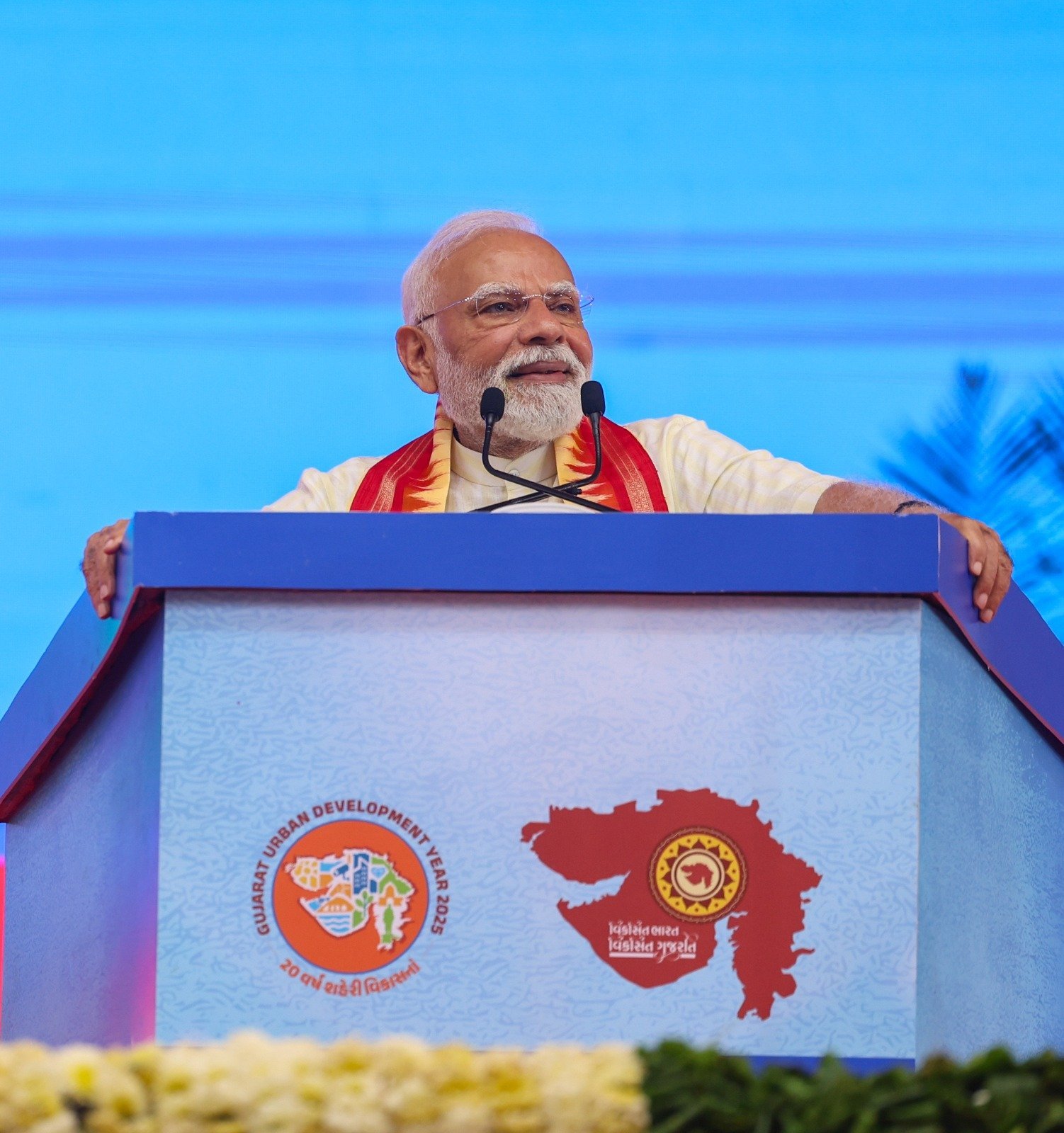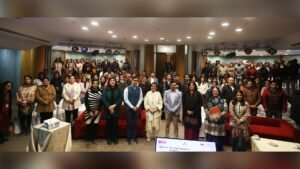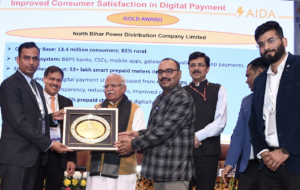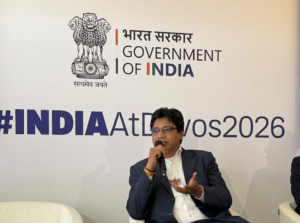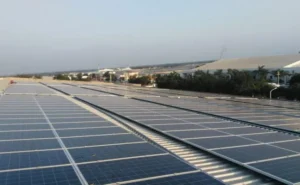Gujarat: In a landmark moment for India’s green energy and manufacturing sectors, Prime Minister Narendra Modi inaugurated a series of transformative green mobility initiatives at the Suzuki Motor Plant in Hansalpur, Gujarat. The event marks a significant stride in India’s journey toward self-reliance (Aatmanirbharta) and global leadership in sustainable transport.
Addressing the gathering amidst the festive spirit of Ganeshotsav, the Prime Minister described the occasion as a new chapter in the Make in India movement. He announced that electric vehicles (EVs) manufactured in India will now be exported to over 100 countries, including Japan and several European nations. This milestone, he said, reflects the shared vision of “Make in India, Make for the World.”
Among the key initiatives launched was the commencement of hybrid battery electrode manufacturing—an essential component of the EV ecosystem. The Prime Minister emphasized that this development not only strengthens India’s domestic manufacturing capabilities but also deepens the strategic partnership between India and Japan. He extended his congratulations to the citizens of both nations and to Suzuki Motor Corporation for their collaborative efforts.
Reflecting on the origins of this success story, PM Modi recalled that in 2012, during his tenure as Chief Minister of Gujarat, land was allocated to Maruti Suzuki in Hansalpur with the foresight of building an Aatmanirbhar Bharat. He noted that those early decisions are now bearing fruit, contributing meaningfully to India’s current industrial and strategic goals.
Paying tribute to the late Osamu Suzuki, the Prime Minister remembered him as a visionary leader whose legacy continues to shape Maruti Suzuki’s growth in India. He expressed pride in witnessing the expansion of Suzuki’s vision and reaffirmed the strength of India’s democracy, demographic advantage, and skilled workforce—factors that make India a compelling partner for global enterprises.
Highlighting Maruti Suzuki’s role as a brand ambassador for Make in India, the Prime Minister noted that the company has been India’s largest car exporter for four consecutive years. With the launch of EV exports, he affirmed that vehicles bearing the Made in India label will now be driven across dozens of countries.
Prime Minister Narendra Modi underscored the importance of battery production in the EV value chain. He recalled the foundation of the TDSG battery plant in 2017 and announced that three Japanese companies—Toshiba, Denso, and Suzuki—will now jointly manufacture battery cells and electrodes in India. This localization, he said, will accelerate the growth of hybrid electric vehicles and reinforce India’s self-reliance in clean energy technologies.
The Prime Minister also shared his vision for converting old vehicles and ambulances into hybrid EVs, a proposal he had made during his visit to Singapore. He commended Maruti Suzuki for developing a working prototype of a hybrid ambulance within six months, aligning with the ₹11,000 crore PM E-DRIVE scheme. He emphasized that such innovations will reduce pollution and modernize India’s transport infrastructure.
Reaffirming India’s emergence as a reliable hub for clean energy and mobility, PM Modi highlighted the country’s resilience amid global supply chain disruptions. He traced the roots of this transformation to the launch of Make in India in 2014 and detailed the government’s efforts to create a globally competitive manufacturing ecosystem. These include the development of industrial corridors, plug-and-play infrastructure, logistics parks, and the Production Linked Incentive (PLI) scheme.
The Prime Minister cited tangible outcomes of these reforms, noting a 500% increase in electronics production, a 2,700% surge in mobile phone manufacturing, and over 200% growth in defence production over the past decade. He encouraged states to adopt pro-development policies and foster healthy competition to attract global investment.
Looking ahead, PM Modi emphasized the government’s focus on Mission Manufacturing and futuristic industries such as semiconductors, with six new plants planned across the country. He also announced the launch of the National Critical Mineral Mission, which will conduct over 1,200 exploratory campaigns to identify essential minerals for industrial growth.
The Prime Minister concluded by reaffirming the enduring partnership between India and Japan, rooted in cultural affinity and mutual trust. He recalled Japan’s pivotal role in the Vibrant Gujarat Summit and praised the hospitality extended by the people of Gujarat to Japanese guests. He highlighted initiatives such as Japanese language education, cultural accommodations, and youth exchange programmes as key to strengthening bilateral ties.
Expressing confidence in India’s trajectory, PM Modi stated that today’s efforts will lay the foundation for a developed India by 2047. He affirmed that Japan will continue to be a trusted partner in this journey.
The event was attended by the Chief Minister of Gujarat, Bhupendrabhai Patel, Japan’s Ambassador to India, H.E. Ono Keiichi and senior officials from Suzuki Motor Corporation, among other dignitaries.
Background
Prime Minister inaugurated two historic milestones at Suzuki Motor plant in Hansalpur, Ahmedabad. Together, these landmark initiatives underscore India’s emergence as a global hub for green mobility while advancing Prime Minister’s commitment to Make in India and Aatmanirbhar Bharat.
In a major example of the success of Make in India, Prime Minister inaugurated and flagged off the “e VITARA”, Suzuki’s first global strategic Battery Electric Vehicle (BEV). The Made-in-India BEVs will be exported to more than one hundred countries, including advanced markets such as Europe and Japan. With this milestone, India
will now serve as Suzuki’s global manufacturing hub for electric vehicles.
Prime Minister also inaugurated the next phase of India’s battery ecosystem with the start of local production of hybrid battery electrodes at TDS Lithium-Ion Battery plant in Gujarat. The plant, a joint venture of Toshiba, Denso and Suzuki will boost domestic manufacturing and clean energy innovation. This development ensures that more
than eighty percent of the battery value will now be manufactured within India.

